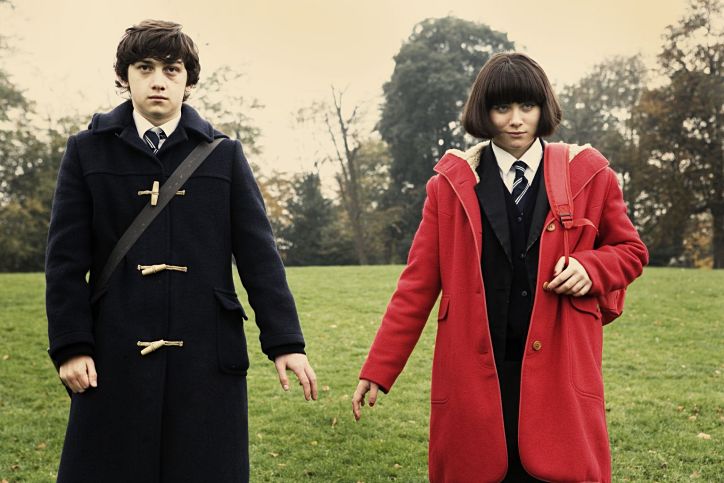 |
| Craig Roberts and Yasmin Paige in Submarine |
"Submarine is an important film. Watch it with respect," an introductory note from this peculiar, engaging young man suggests. After obeying the second part of that message, I can’t quite agree with the first, which I doubt was meant entirely in earnest. Significance can be overrated, and Submarine makes the most of its whimsical triviality.
Not that what happens — first love, family trouble, stray encounters with the weirdness of the world — feels trivial to Oliver. The key to any coming-of-age story, whether the author is James Joyce or John Hughes, lies in calibrating the distance between how momentous and unprecedented certain experiences can feel and how normal, how usual they really are. Learning to live with that discrepancy is part of growing up, which Oliver realizes at the end of the film.
"I don’t know if I’ve come of age," he says in a voice-over. "But I’m certainly older. I feel shrunken." You could say that he has achieved his actual size, through a process that is both funny and sad.
It may tell you everything you need to know to note that one of Oliver’s favorite books is The Catcher in the Rye, that he has a drawing of a young Woody Allen tacked to his bedroom wall, and that his idea of a date movie is The Passion of Joan of Arc. It says a lot about the world imagined by Ayoade (and by Joe Dunthorne, who wrote the novel on which Submarine is based) that the small seaside town where Oliver lives has a cinema that shows old foreign movies. While no period is specified, Oliver is growing up in an era of small, bulky television sets, VHS tapes and ill-advised hairstyles. That would make him roughly my age. Yikes.
The boy’s own shaggy schoolboy ’do is not so bad; nor is the Prince Valiant bob favored by Jordana Bevan (Yasmin Paige), his moody first love. Oliver’s mother, Jill (Sally Hawkins), wears a blond helmet rivaled only by her husband’s unkempt flop-over. Transcending all of them is the spike-topped mullet favored by Graham Purvis (Paddy Considine), a neighbor of the Tates who is also an old flame of Jill’s and a new-age guru with a customized van.
In three chapters, framed by a prologue and an epilogue, Oliver must negotiate his own relationship with Jordana and an apparent crisis in his parents’ marriage. His dad, Lloyd (the brilliantly deadpan Australian actor Noah Taylor), is a marine biologist with a depressive streak, and Oliver worries that Jill is drifting toward Graham. Meanwhile he faces a test of his devotion to Jordana, and it all adds up to a big, drily hilarious ball of confusion.
And not really to anything new. This is the kind of story, as Oliver himself would admit, that we have already seen dozens of times. But Ayoade’s keen visual wit and clever, knowing touches keep it surprising and nimble, especially in the quick, lurching early scenes, which are startlingly funny. At moments he approaches the mordant, heady sense of the sorrows and freedoms of youth captured by François Truffaut in The 400 Blows, a movie that, come to think of it, Oliver has no doubt already seen.
The freshness wears off a bit as the story takes shape, and crucial passages are handled by means of montage sequences accompanied by broody tunes from Alex Turner, frontman of Arctic Monkeys. But the growing familiarity is in keeping with the logic of Oliver’s discovery that, unique as he may be, he’s also just like everybody else.



No comments:
Post a Comment